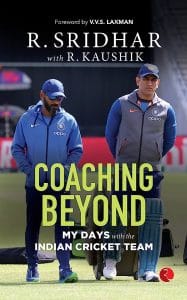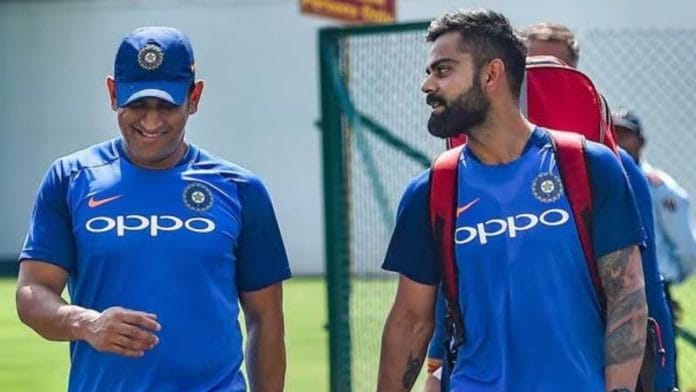India’s entry into the final of the WTC in 2021 was neither a dramatic nor an overnight development. It was the culmination of the work put in over the last six years or so, with the first seeds sowed towards the end of 2014, when Virat was temporarily in charge of the Test team in Adelaide because MS was injured. By then, it was obvious that Virat would be the natural successor to India’s most successful skipper at that moment, though no one was aware that MS would drop the Test retirement bombshell midway through that tour of Australia, in December 2014. It’s no accident that we have finished as the year-end No. 1 Test team for five consecutive years, between 2016 and 2021. They say getting to the top is easier than staying there. It has been a hard grind, both getting to the pinnacle and then continuing to occupy that position—not a mean accomplishment in an era where all three formats compete for eyeballs and participation, and where players’ mental and physical reserves are stretched too thin.
The sustained success of the team is testament to the culture of inclusiveness and fearlessness that has been an integral part of our game plan since 2014, which is my reference point because that’s when I joined the set-up. It was a culture espoused by the captain and heartily endorsed by the coach, two kindred spirits whose strong bond of mutual respect and admiration was tinged with a steely resolve and a never-back-down mindset.
The 2014–15 tour of Australia was my first full-fledged outing with the Indian team. We were due to fly out from Mumbai a little after the BCCI Awards night, after which we would retire to our rooms, change into our travel gear and head out for the airport. Instinctively, Ravi called for a quick meeting after the function before we dispersed for our rooms.
‘Look,’ he started, without preamble, ‘I have been going to Australia for a long time and I have seen how they play their cricket. If we go there and play cricket the same way as we have been earlier, there is not much we will bring back to India. We are not going to win Jack. For every step they take, we will have to take two steps forward. For every gaali they give, we will have to give three gaalis. For every bouncer they bowl, we will have to bowl three bouncers, not only on the field but even off it. The only way we can beat Australia is with aggression. I don’t want no timid guys taking that flight.’ The instructions were clear-cut, the message was very clear—we will take the bull by its horns. Whether we win or lose didn’t matter, we would not play timid cricket. That suited Virat perfectly, as we were to soon find out.
Adelaide was the precursor to what the cricket world could expect from new India. Australia had built on a useful first innings lead by pulling away to 290 for five at the end of the fourth day of the first Test, an overall lead of 363. We knew a declaration was imminent, if not overnight then very early on the final morning.
After our warm-downs, we were in the process of packing up when word filtered through that Ravi and Virat wanted to have a quick chat, a quick huddle in the dressing room. Virat was filling the captaincy breach caused by the injury to MS, who was on tour with us and would be available from the second Test. In his first outing as Test captain, Virat was unequivocal in what India’s approach would be the next morning. ‘No matter what target they set us, we are going to chase it down.’ We were already looking at a required rate of four an over in case Australia declared overnight, which they did. But Virat was unshakeable in his belief that there was no question of battening down the hatches and looking for a draw.
Also read: Marwaris replaced Bengalis as chief partners of British banks. Racism pushed them toward Gandhi
Virat later told me that on the bus ride back to the hotel, MS slid into the seat next to him. ‘Look, Virat, you can chase down this total, you are that kind of a player and we all know that. But as captain, you will also have to think about what the others are capable of,’ MS told him. ‘Can they do it? Are the other batters capable of playing that positively and attempting to chase down 360 on the final day of a Test match? While making decisions, you will have to consider the strength of the entire team.’
Virat said he saw some merit in what MS had said, but he was clear in his mind that positivity was the way forward. Virat’s reply to MS was pithy, ‘Only if we try can we know na? Whether they can do it or not… We have not chased 360 on the last day of a Test match ever before because we haven’t yet tried to do that. Let us try and give it a shot. Unless we try, how will we know how good we are?’
 This excerpt from Coaching Beyond—My Days with Indian Cricket Team by R Sridhar has been published with permission from Rupa Publications.
This excerpt from Coaching Beyond—My Days with Indian Cricket Team by R Sridhar has been published with permission from Rupa Publications.






